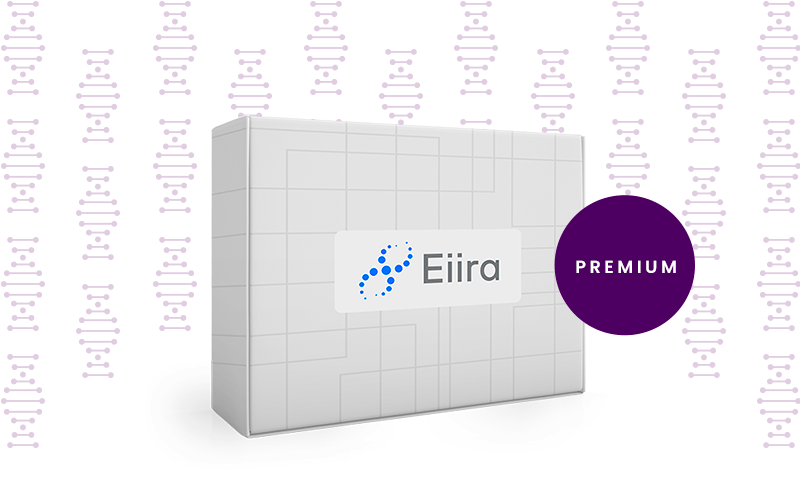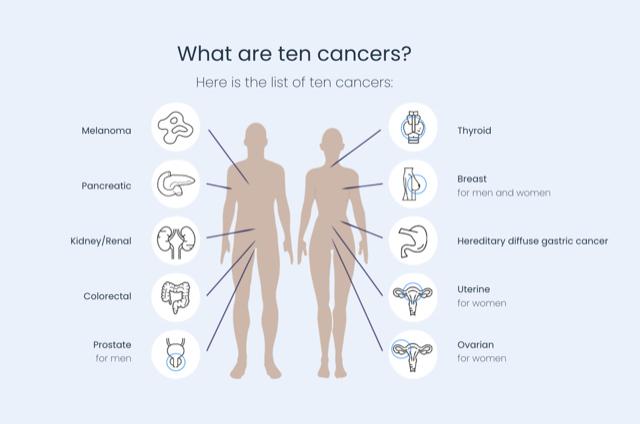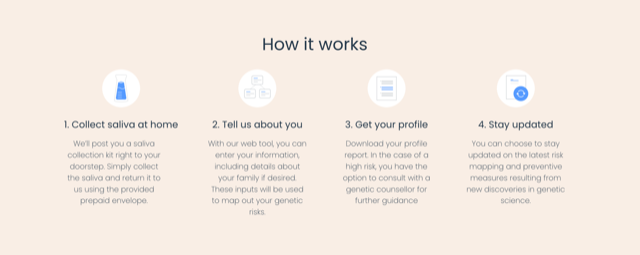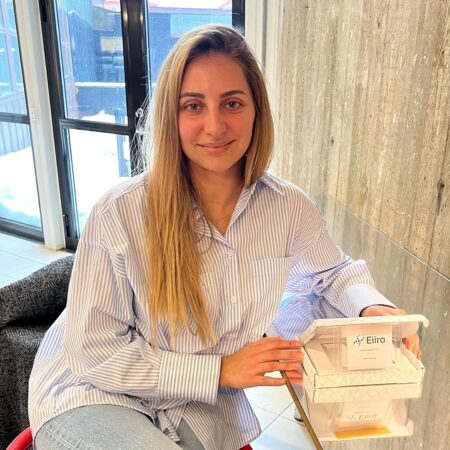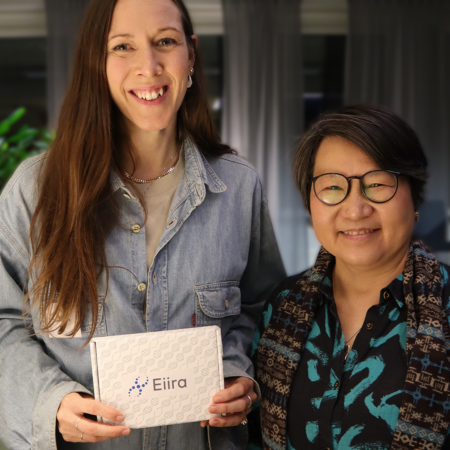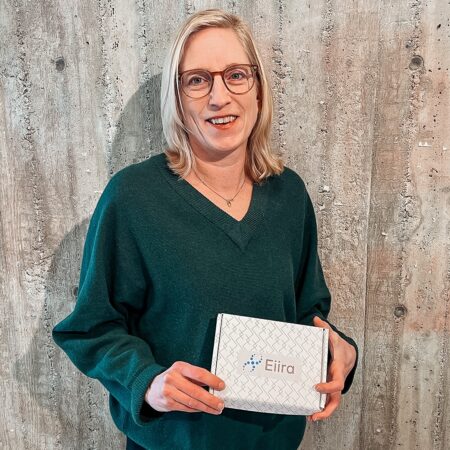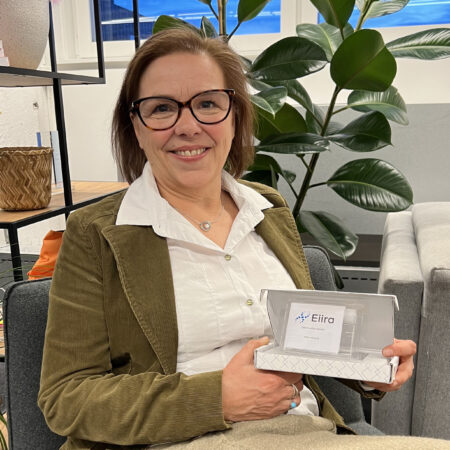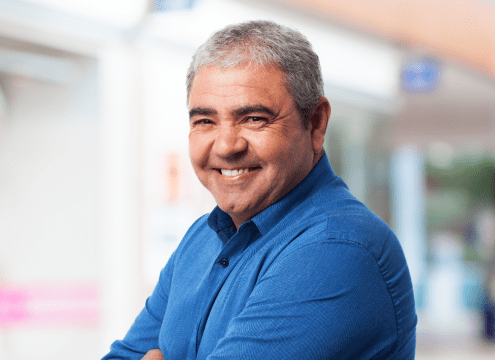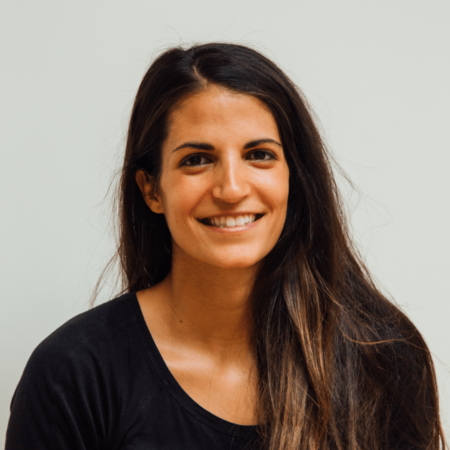Eiira Premium
9990 kr
Ett genetiskt test för förebyggande av ärftlig cancer Enkelt genetiskt test som görs hemma Upptäck ärftliga risker för de 10 vanligaste cancerformerna Vidta förebyggande åtgärder Upptäckt av risker för sällsynta ärftliga cancerformer Information som täcker 100% av ditt genom Livstids uppdateringar av vad framtida vetenskap kan erbjuda för hälsoprevention. Ett års gratisuppdateringar
Slut i lager
Ja, det är enkelt. Vi skickar ett kit för salivinsamling och ett returkuvert hem till dig via Postnord. Du spottar helt enkelt saliv i uppsamlingsröret. Om du behöver hjälp finns instruktioner med i kitet. När du har samlat in saliv lägger du kitet i returkuvertet, som har en betald returetikett. Du kan sedan lämna in kuvertet på ett av Postnords serviceställen.
Det enda du behöver göra är att ange dina uppgifter och din familjs sjukdomshistoria. Med hjälp av verktygen på vår webbplats kan du enkelt fylla i informationen. Det är okej om du inte anger din familjs medicinska historia eftersom du inte vet eller föredrar att inte göra det.
- Resultaten av dina genetiska tester. Du hittar mer information i avsnittet “Vilken teknik ligger bakom gentestet?”.
- Din familjs sjukdomshistoria. Med tanke på den nuvarande genomiska vetenskapens begränsningar kan dina genetiska testdata inte ensamma förutsäga alla risker. Familjens medicinska historia innehåller mycket ärftlig information. I vissa fall kan enbart familjehistoria förutsäga ärftlig cancerrisk. Därför används familjens sjukdomshistoria som en del av indata.
- Information om dig och din sjukdomshistoria. Personlig information som etnicitet och anor har betydelse för våra ärftliga risker. Din livsstil och din sjukdomshistoria påverkar risknivån.
Eiira Premium-testet använder helgenomsekvensering (WGS), den mest avancerade metoden som låter oss läsa och analysera hela uppsättningen av genetisk information (DNA) i ditt genom, som består av flera miljarder baspar. Denna stora mängd data kan användas för att identifiera variationer eller mutationer i en persons DNA som kan påverka den personens hälsa eller göra den mer benägen att drabbas av vissa sjukdomar. Omfattningen av sekvenseringsprocessen och behovet av specialiserad utrustning, skickliga tekniker och avancerade beräkningsverktyg gör helgenomsekvensering till ett dyrare alternativ jämfört med andra genetiska testmetoder, såsom panelgenetiska tester som vanligtvis används av de flesta testleverantörer och sjukhus, eller hel exom-sekvensering (WES) som används i Eiira Classic.
WGS kan användas för att analysera både arvsmassa och somatiskt DNA, men för Eiiras ärftliga riskbedömning utförs den på en persons arvsmassa. Detta möjliggör identifiering av genetiska variationer som kan öka en persons risk att utveckla vissa ärftliga sjukdomar, såsom bröstcancer, kolorektalcancer eller andra cancerformer och sjukdomar, såsom hjärtsjukdom.
Eiiras test och inkluderingen av 50 gener: Rapporten inkluderar 50 gener, baserade på svenska riktlinjer, som är kända för att öka risken att utveckla cancer. Genetisk information samlas in genom helgenomsekvensering (WGS) och analyseras med beräkningsverktyg för att hitta mutationer kopplade till ökad sjukdomsrisk. Resultaten används för att ge individuella rekommendationer för att förebygga sjukdomar, upptäcka dem tidigt och erbjuda behandling, vilket leder till mer personanpassad vård.
- Risk är inte en diagnos.
- Vissa personer med hög risk får aldrig cancer.
- På samma sätt kan personer med låg risk ändå få cancer.
Vilka är de tio cancerformerna?
Här är listan över de tio cancerformerna:

Associerade gener
För att kunna göra denna bedömning så har vi analyserat 50 gener i ditt DNA för att identifiera eventuell förekomst av sjukdomsorsakande varianter som är kopplade till en förhöjd cancerrisk. Dessa gener har valts baserat på att deras koppling till vissa specifika cancerformer eller cancersyndrom. Tabellen nedan visar gener som är kopplade till de tio olika cancerformer som analysen omfattar (det vill säga de gener där vi vet att de personer som bär på en sjukdomsorsakande variant har en förhöjd risk för cancer).
| Cancerformer | Associerade gener |
| Bröst | BRCA1, BRCA2, PALB2, TP53, PTEN, CDH1, STK11, NF1, ATM, CHEK2, BARD1, RAD51C, RAD51D |
| Äggstockar | BRCA1, BRCA2, PALB2, RAD51C, RAD51D, BRIP1, MLH1, MSH2, EPCAM, MSH6, PMS2 |
| Tarm | MLH1, MSH2, MSH6, PMS2, EPCAM, APC, MUTYH, STK11, SMAD4, BMPR1A, PTCH, PTEN, NTHL1, POLD1, POLE, MSH3, TP53 |
| Prostata | BRCA2, HOXB13, BRCA1, MLH1, MSH2, MSH6, EPCAM, PMS2, ATM, CHEK2, PALB2, TP53 |
| Melanom | CDKN2A, BAP1, CDK4, POT1, TERT, MITF1, MC1R, ASIP, TYR, TYRP1, TP53 |
| Njurar och urinvägar | VHL, FLCN, FH, MET, PTEN, SDHB, BAP1, SDHA, SDHC, SDHD |
| Tyreoidea | RET, APC, PTEN, DICER1, TP53 |
| Livmoder | MLH1, MSH2, MSH6, PMS2, PTEN |
| Pancreas | BRCA1, BRCA2, ATM, PALB2, MLH1, MSH2, EPCAM, MSH6, PMS2, STK11, CDKN2A |
| Magsäck | CDH1, CTNNA1 |
Hur det fungerar
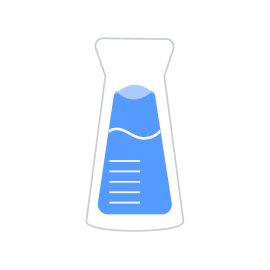
1. Ta ett salivtest hemma
Vi skickar ett salivprovtagningskit hem till dig. Du skickar enkelt tillbaka ditt salivprov till oss i ett förbetalt returkuvert som kommer med.
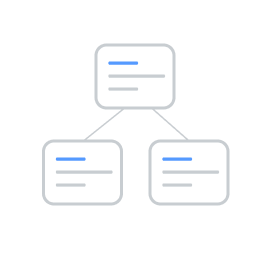
2. Berätta om dig själv
Med vårt webbverktyg anger du information om dig själv och om möjligt även om din familj.

3. Ladda ned din profil
Vi informerar dig när analysen är klar och du kan ladda ner din profilrapport. Om det skulle finnas en hög risk erbjuder vi dig att träffa en genetisk vägledare.
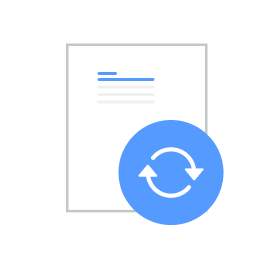
4. Håll dig uppdaterad
Du kan välja att hålla dig uppdaterad om de senaste riskkartläggningarna och förebyggande åtgärderna till följd av nya upptäckter inom genetikforskningen.
Jämför Eiira Classic och Premium
| Egenskaper | Eiira Classic | Eiira Premium |
|---|---|---|
| Riskkartläggning för de tio vanligaste cancerformerna | ✅ | ✅ |
| Förebyggande åtgärder för de tio vanligaste cancerformerna | ✅ | ✅ |
| Uppdateringar för de tio vanligaste cancerformerna | ✅ | ✅ |
| Framtida uppdateringar för att täcka andra sjukdomar | Begränsad | Obegränsad |
| Livstidsuppdateringar av de senaste upptäckterna inom genetisk vetenskap | Begränsad | Obegränsad |
| Möjlighet att upptäcka sällsynta cancervarianter | ⭐⭐⭐ (medium) | ⭐⭐⭐⭐⭐ (de flesta) |
| Teknik för genetisk sekvensering | Sekvensering av hela exomer (WES) | Sekvensering av hela genomet (WGS) | Välj ditt Eiira genetiska test: | 4990 kr | 9990 kr |
Eiira kunder
Ta reda på vad andra redan har gjort för att förebygga ärftliga cancerformer med Eiira
Datasekretess och datasäkerhet
Eiira tar din integritet och säkerhet på allvar

GDPR
Din data lagras säkert i Sverige, i enlighet med EU:s strikta dataskyddslagar.
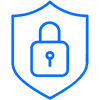
Exklusiv användning
Dina uppgifter används endast för din riskanalys och kommer aldrig att delas med tredje part utan ditt tillstånd.

Radera när som helst
Du är ensam ägare till dina uppgifter och du kan när som helst begära att dina uppgifter raderas.
